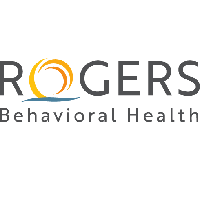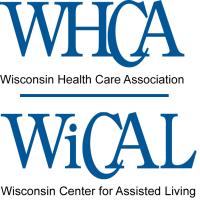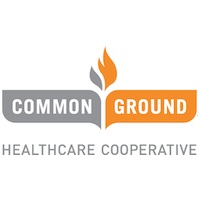
MCW psychiatry residency programs in northeastern and central Wisconsin receive initial accreditation
Recruitment to begin immediately
Milwaukee, Wis., – The Medical College of Wisconsin (MCW) has received initial accreditation for two new psychiatry residency programs in northeastern and central Wisconsin, with a planned start date of July 1, 2017.The northeastern Wisconsin residency program will train four psychiatry residents per year and the central Wisconsin program will train three psychiatry residents per year, both over a four-year period. MCW will begin recruiting residents for both programs immediately.
“MCW is doing extremely innovative things in medical education. However, nothing is more important to the health of Wisconsin citizens than what we have been able to accomplish in establishing these new mental health residencies,” says Joseph E. Kerschner, MD, executive vice president of MCW and dean of the school of medicine. “If even one resident from these programs decides to practice in the region we will dramatically change access to mental health care within a decade.”
Medical College of Wisconsin Affiliated Hospitals, Inc. (MCWAH) is the sponsoring institution and will employ all of the psychiatry residents, and, along with MCW’s Department of Psychiatry and Behavioral Medicine, will be responsible for ensuring the programs meet Accreditation Council for Graduate Medical Education (ACGME) requirements.
“This initial accreditation of two psychiatry residency programs in northeastern and central Wisconsin is great news for our regional campuses and the citizens of those regions,” says Kenneth B. Simons, MD, executive director and DIO, MCWAH, Inc., senior associate dean for Graduate Medical Education and Accreditation, professor of ophthalmology and pathology at MCW. “Aspiring physicians who complete residency in Wisconsin have a better than 70 percent chance of remaining in the state to practice medicine. MCW is on the forefront of mental health advancements and this exemplifies our dedication to educating and training the psychiatrists of today and tomorrow.”
There is an acute need for psychiatrists in rural areas of Wisconsin. In addition, there has been little increase in the number of psychiatrists trained nationally over the past 20 years. MCW-Milwaukee offers one of two psychiatry residencies in the state and trains eight new psychiatrists per year in a four-year residency which means 32 residents are in training at any one time. The two new residencies will enable MCW to increase psychiatrist production in Wisconsin by more than 40 percent. The MCW Department of Psychiatry and Behavioral Medicine will soon be producing 62 percent of the annual new psychiatrists in our state.
Robert Gouthro, MD, is the residency training director who will lead the northeastern Wisconsin psychiatry residency. Ed Krall, MD, is the residency training director who will lead the central Wisconsin psychiatry residency.
These residency programs were developed with the help of grants from the Wisconsin Rural Physician Residency Assistance Program and the Wisconsin Department of Health (DHS). The central Wisconsin program received a 50 percent match from the MCW School of Medicine and the northeastern Wisconsin program received a 50 percent match from the Milwaukee VA Medical Center.
Key training sites for the northeastern Wisconsin psychiatry residency include the Milo C. Huempfner Green Bay VA Community Based Outpatient Clinic, Winnebago Mental Health Institute, Wisconsin Resource Center, Bellin Psychiatric Center and Brown County Community Treatment Center. The Milo C. Huempfner VA Clinic, which is managed by the Milwaukee VA Medical Center, is providing space and infrastructure support for seven of the 16 psychiatry residents in northeastern Wisconsin.
“This is a win for MCW, the VA, the state of Wisconsin, and most importantly, our veterans,” says Dr. Lehrmann. “It will provide physicians the opportunity to understand post-traumatic stress disorder and other factors and conditions our veterans face. Psychiatric positions are traditionally difficult to recruit for. This will give veterans more access to mental health care, while possibly bringing more mental health professionals into the Department of Veterans Affairs and northeast Wisconsin.”
Key training sites for Central Wisconsin Psychiatry Residency includeMinistry St. Mary’s Hospital in Rhinelander, Ministry St. Michael’s Hospital in Stevens Point, Wausau and Wisconsin Rapids VA Community Based Outpatient Clinics, North Central Health Care, Forrest County Potawatomi Health Care, Wood County Human Services , Portage County Health and Human Services, Bridge Health Clinic in Wausau and Froedtert Memorial Lutheran Hospital.
MCW’s regional campuses were created to help address the misdistribution and shortage of physicians in Wisconsin with an emphasis on primary care and mental health. The MCW-Green Bay campus matriculated its first class of 26 medical students in 2015 and the MCW-Central Wisconsin campus will matriculate approximately 25 medical students who will start July 1st, 2016. Regional campus medical students will rotate their training through some of the same clinical sites as those where the residents will train, allowing the students the opportunity to work with residents as required by the Liaison Committee on Medical Education.
# # #
About the Medical College of Wisconsin
The Medical College of Wisconsin is the state’s only private medical school and health sciences graduate school. Founded in 1893, it is dedicated to leadership and excellence in education, patient care, research and community engagement. More than 1,200 students are enrolled in MCW’s medical school and graduate school programs in Milwaukee, and 26 medical students are enrolled at MCW-Green Bay. A regional medical education campus is scheduled to open in Central Wisconsin in 2016. MCW’s School of Pharmacy will open in 2017 or 2018 with an initial class size of 60 students. A major national research center, MCW is the largest research institution in the Milwaukee metro area and second largest in Wisconsin. In FY 2014-15, faculty received approximately $158 million in external support for research, teaching, training and related purposes, of which approximately $139 million is for research. This total includes highly competitive research and training awards from the National Institutes of Health (NIH). Annually, MCW faculty direct or collaborate on more than 3,200 research studies, including clinical trials. Additionally, more than 1,500 physicians provide care in virtually every specialty of medicine for more than 525,000 patients annually.


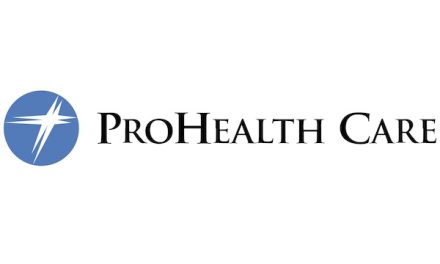










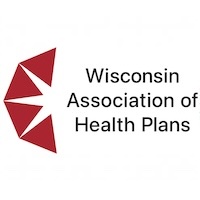




.jpg?bwg=1612548324)







